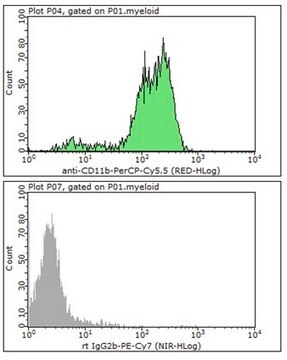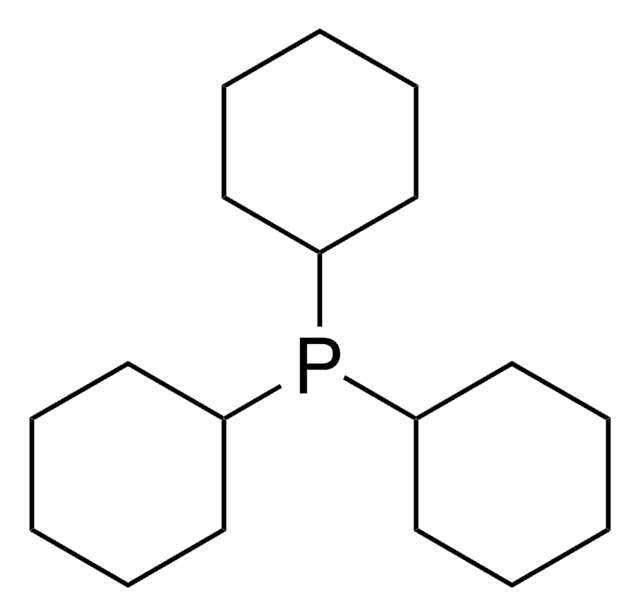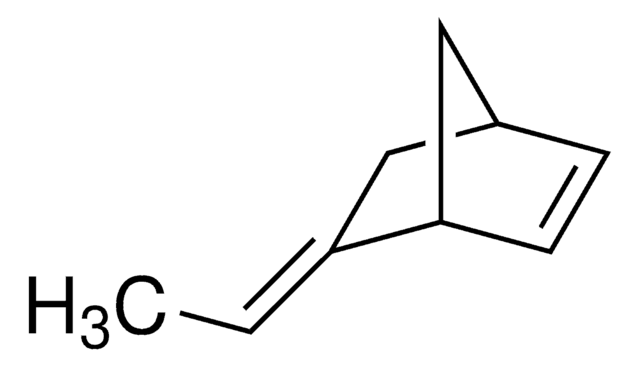All Photos(1)
About This Item
Linear Formula:
CH2=CH(CH2)4CH=CH2
CAS Number:
Molecular Weight:
110.20
Beilstein:
605288
EC Number:
MDL number:
UNSPSC Code:
12352100
PubChem Substance ID:
NACRES:
NA.22
Recommended Products
Quality Level
Assay
98%
refractive index
n20/D 1.422 (lit.)
bp
114-121 °C (lit.)
density
0.746 g/mL at 25 °C (lit.)
SMILES string
C=CCCCCC=C
InChI
1S/C8H14/c1-3-5-7-8-6-4-2/h3-4H,1-2,5-8H2
InChI key
XWJBRBSPAODJER-UHFFFAOYSA-N
Looking for similar products? Visit Product Comparison Guide
General description
1,7-Octadiene can serve as a crosslinker and source of ethylene for a variant of Mori′s conditions in CEYM-related reactions.
Application
1,7-Octadiene has been used in a study to assess the structure and reaction rate in olefin ring-closing metathesis of a series of simple dienes. It has also been used in a study to investigate micropatterned surfaces prepared by plasma polymerization.
Signal Word
Danger
Hazard Statements
Precautionary Statements
Hazard Classifications
Aquatic Chronic 3 - Asp. Tox. 1 - Flam. Liq. 2
Storage Class Code
3 - Flammable liquids
WGK
WGK 3
Flash Point(F)
50.0 °F - closed cup
Flash Point(C)
10 °C - closed cup
Personal Protective Equipment
dust mask type N95 (US), Eyeshields, Gloves
Choose from one of the most recent versions:
Already Own This Product?
Find documentation for the products that you have recently purchased in the Document Library.
B F P McVey et al.
Langmuir : the ACS journal of surfaces and colloids, 33(35), 8790-8798 (2017-05-30)
The role surface capping molecules play in dictating the optical properties of semiconductor nanocrystals (NCs) is becoming increasingly evident. In this paper the role of surface capping molecule polarity on the optical properties of germanium NCs (Ge NCs) is explored.
Rahul M Visalakshan et al.
ACS applied materials & interfaces, 11(31), 27615-27623 (2019-07-17)
The nature of the protein corona forming on biomaterial surfaces can affect the performance of implanted devices. This study investigated the role of surface chemistry and wettability on human serum-derived protein corona formation on biomaterial surfaces and the subsequent effects
M Ramiasa-MacGregor et al.
Nanoscale, 8(8), 4635-4642 (2016-02-09)
The wetting of a material can be tuned by changing the roughness on its surface. Recent advances in the field of nanotechnology open exciting opportunities to control macroscopic wetting behaviour. Yet, the benchmark theories used to describe the wettability of
Christopher Jay T Robidillo et al.
Nanoscale, 10(39), 18706-18719 (2018-10-03)
This study reports the preparation of functional bioinorganic hybrids, through application of the thiol-ene reaction, that exhibit catalytic activity and photoluminescent properties from enzymes and freestanding silicon nanocrystals. Thermal hydrosilylation of 1,7-octadiene and alkene-terminated poly(ethylene oxide)methyl ether with hydride-terminated silicon
Ian W Ashworth et al.
Chemical communications (Cambridge, England), 46(38), 7145-7147 (2010-09-08)
In the RCM reactions of a series of simple α,ω-dienes, the relative order of reactivity has been unambiguously determined showing that cyclohexene forms faster than cyclopentene or cycloheptene. 1,5-Hexadiene inhibits the RCM of 1,7-octadiene; 1,5-hexadiene cannot progress to the RCM
Our team of scientists has experience in all areas of research including Life Science, Material Science, Chemical Synthesis, Chromatography, Analytical and many others.
Contact Technical Service










